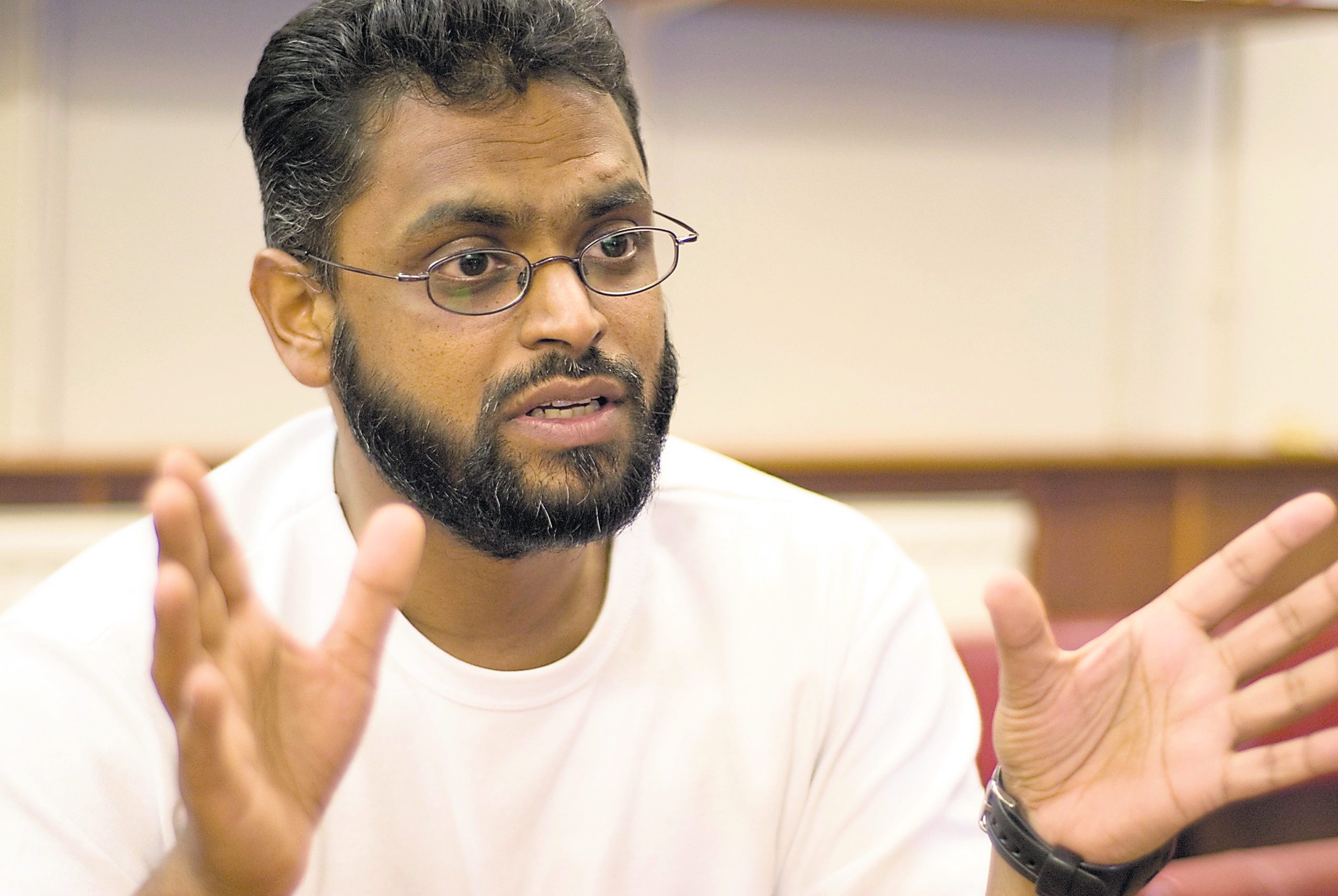A KU graduate blamed Islamophobia and the government’s anti-terror policies as he furiously walked out of an Islamophobia awareness event with controversial speaker Moazzam Begg.
Journalist and KU graduate Bashir Ibrahim was meant to speak to the audience of 70 at the Islamic Society (ISOC) event but refused to return during Islamophobia Awareness Month because KU security would not allow his friend into the Penrhyn Road lecture hall.
Prevent is a safeguarding counter-terrorism law that requires universities to tackle radicalisation, an offence Begg has repeatedly been accused of in the media.
“I never thought I’d be a victim of Islamophobia in my old alumni. And I’m sad and it’s because of Prevent,” Ibrahim said.
Students had to swipe their ID cards before being allowed in and security waited outside to escort Begg to and from the building.
Begg, an ex-Guantanamo Bay detainee and CAGE representative, (a human rights charity) has been controversial for his remarks’ such as calling British ISIS member Jihadi John “a beautiful young man”.
“I think refusing entry to Bashir Ibrahim’s guest was not only unnecessary but also rude and discourteous,” Begg said.
“I have spoken in Oxford and Cambridge Unions multiple times. They have no forms to sign, security on the doors, student cards being swiped or restrictions on guest. The same is true of many other unis I’ve spoken at. The duties and guidance of the government are the same. The implementation clearly is not.”
This was the third time Begg has spoken at Kingston University and Ibrahim has spoken at ISOC events regularly every year since graduating from KU in 2014.
A spokesman for Kingston University and the Union of Kingston Students told The River: “All speakers who attend events across our campuses are required to conform with the relevant policies of the University and Union of Kingston Students.
“This includes signing a joint values statement under the University’s Freedom of Speech Policy.”
Begg is controversial as he has previously been accused of ‘radicalising’ students during talks at universities.
In 2015, KU was named as one of the worst four universities for holding events featuring ‘hate speakers’.
Begg told the audience: “The word radicalisation, the suffragettes they were regarded as radicals. Some of Labour’s policies are regarded as radical. Teenage Mutant Ninja Turtles, they were radical too, right?
“So what is wrong with the term radical? And how can you say that these people are being radicalised, and say that it is definitely something that is wrong? Why can it not be positive radicalisation? This is a tortured use of language and a misuse of our language that has been hijacked.”
It is uncertain whether Kingston University has conformed to Prevent’s regulations as they did not have an opposed speaker, a specific requirement of the counter-terrorism law.
Begg said: “Tell me how many lives have been saved (by Prevent)? The answer is none. Prevent in universities is having a chilling effect on debates and a deadening effect on research.”
Counter-terrorist police are aware of Begg talking at universities, but will not comment further.
A KU spokesman said they are “committed to upholding freedom of speech and to providing the opportunity for stimulating academic debate on a broad range of topics and issues.”
“The University works hard to ensure these discussions take place in a respectful environment that encourages people from different viewpoints to have their voices heard,” he added.
Begg is one of the 500 most influential Muslims in the world.
He spoke to KU about his time in Guantanamo Bay, the war on terror, the term radicalisation, the rise of Islamophobia and his hatred for Prevent.
“Islamic state today is the reason why we have Prevent,” he said. “Because of a war crime, we have Prevent in our schools, universities, colleges, nurseries, prisons and hospitals. That’s how wide spread it is.
“Trust, empathy and understanding, that is in jeopardy.”
The president of KU’s Amnesty International Society Committee, Ilaria Ferrari, spoke on behalf of herself. She said: “Both this event and the guest speaker were approved by the Union, in accordance with their regulations.
“It is true that some security measures were put in place, I believe that this is due not to the event or the guest speaker, but more probably to the risk of backlash from the audience.”
A KU spokesman said: “We are proud to represent a vibrant, multi-cultural student community where people from all backgrounds and beliefs can come together.”

